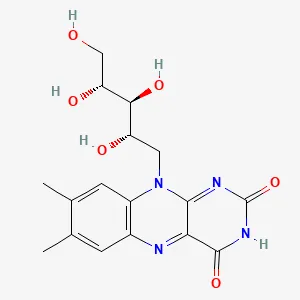
Vitamin B2, also known as riboflavin, is a vital water-soluble nutrient that plays a crucial role in various physiological processes essential for maintaining health and enhancing physical performance. As a member of the B-complex vitamins, riboflavin is integral to energy metabolism, cellular function, and overall well-being. This essay explores the numerous benefits of vitamin B2 from a fitness and health perspective, emphasizing its significance for individuals engaged in regular physical activity.
One of the primary functions of vitamin B2 is its role in energy production. Riboflavin is a precursor to two important coenzymes: flavin mononucleotide (FMN) and flavin adenine dinucleotide (FAD). These coenzymes are essential for the metabolism of carbohydrates, fats, and proteins, facilitating the conversion of food into usable energy. For athletes and active individuals, adequate levels of riboflavin are crucial for sustaining energy during workouts and optimizing performance. When engaging in physical activity, the body relies heavily on these metabolic pathways to produce adenosine triphosphate (ATP), the energy currency of cells. A deficiency in vitamin B2 can lead to fatigue and decreased exercise capacity, making it essential for those who lead active lifestyles to ensure they meet their riboflavin needs.
In addition to its role in energy metabolism, vitamin B2 contributes significantly to antioxidant defense systems within the body. Riboflavin is involved in the regeneration of glutathione, one of the body’s most potent antioxidants. This process helps neutralize free radicals generated during intense exercise, which can cause oxidative stress and muscle damage. By supporting antioxidant defenses, riboflavin aids in reducing exercise-induced oxidative stress, allowing for quicker recovery times and improved overall performance. This protective effect is particularly beneficial for athletes who regularly engage in high-intensity training or competition.
Moreover, vitamin B2 plays a vital role in maintaining healthy skin and mucous membranes. It contributes to the integrity of these tissues by promoting proper cellular function and regeneration. For individuals involved in fitness activities, healthy skin is essential not only for appearance but also for protection against environmental stressors. Adequate riboflavin intake can help prevent skin disorders and promote healing from minor injuries or irritations that may occur during physical activity.
The positive effects of vitamin B2 extend beyond physical health; they also encompass cognitive function. Riboflavin is involved in neurotransmitter synthesis and plays a role in maintaining optimal brain function. For athletes, mental clarity and focus are crucial components of performance. A deficiency in riboflavin may lead to cognitive impairments that could hinder an athlete’s ability to concentrate during training or competitions. By ensuring sufficient intake of this essential nutrient, individuals can support both their physical performance and cognitive abilities.
For those focused on weight management or fat loss, vitamin B2 can be an advantageous addition to their diet. Foods rich in riboflavin are often nutrient-dense yet low in calories, making them ideal choices for individuals looking to maintain a healthy weight while still getting essential nutrients. Incorporating sources of vitamin B2 into meals can help promote satiety without excessive calorie intake, supporting weight loss efforts while ensuring adequate nutrition.
Incorporating vitamin B2 into one’s diet is relatively straightforward due to its presence in various foods. Excellent sources of riboflavin include dairy products such as milk and yogurt, eggs, lean meats, green leafy vegetables like spinach and broccoli, nuts, and whole grains. By diversifying their diets with these nutrient-rich foods, individuals can easily meet their daily requirements for vitamin B2 while enjoying flavorful meals.
While obtaining sufficient vitamin B2 through diet is generally achievable for most individuals, some populations may be at risk for deficiency. Those with certain medical conditions affecting nutrient absorption or individuals following restrictive diets may need to pay closer attention to their riboflavin intake. In such cases, supplementation may be necessary to prevent deficiency-related complications.
In conclusion, vitamin B2 is an essential nutrient that offers numerous benefits for health and fitness enthusiasts alike. Its contributions to energy metabolism, antioxidant defense systems, skin health, cognitive function, and weight management highlight its importance in promoting an active lifestyle. By prioritizing adequate intake of riboflavin through a balanced diet rich in whole foods or considering supplementation when necessary, individuals can harness the potential benefits of vitamin B2 to enhance their athletic performance while promoting long-term well-being. Embracing this powerful nutrient as part of a comprehensive approach to health will empower individuals on their journey toward achieving optimal fitness while fostering resilience against illness and injury. With proper attention to vitamin B2 status, athletes and fitness enthusiasts alike can unlock new levels of potential in their physical endeavors while enjoying lasting health benefits that contribute to an active lifestyle.
Need your own dietary supplement manufacturer? Extremely competitive rates. We produce it all. Talk to us.
Comments are closed